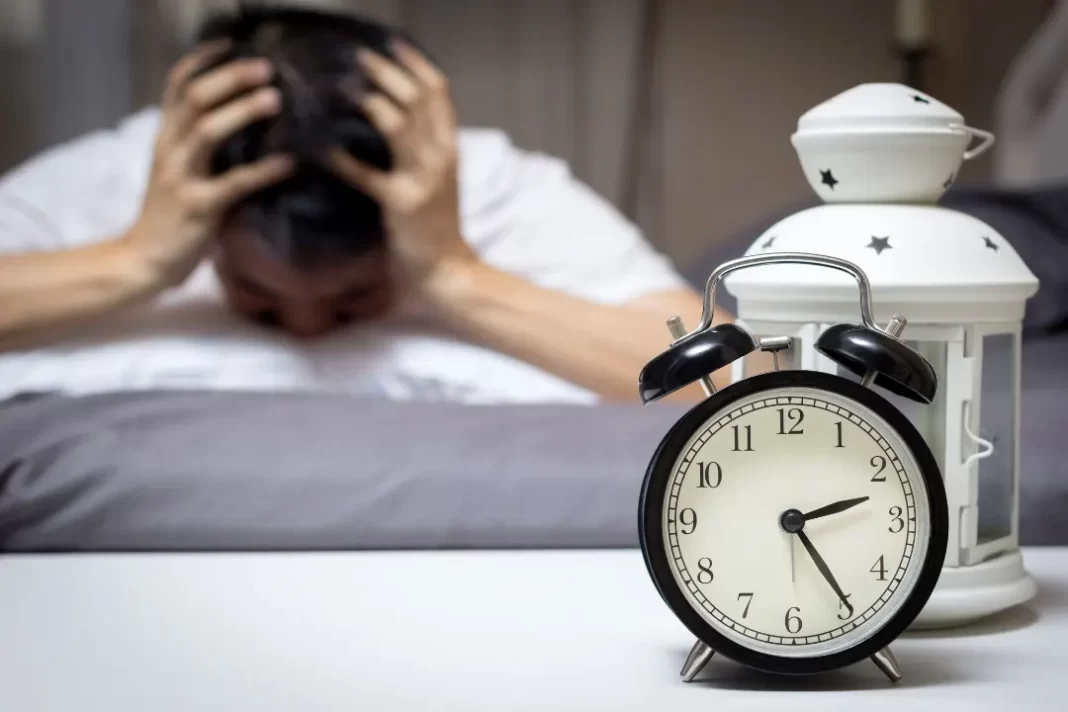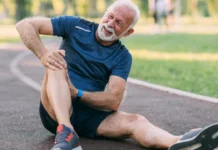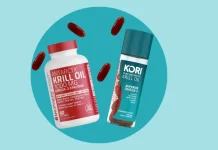Benadryl and melatonin are common ingredients in over-the-counter sleep aids, but are they really safe? In this article, we examine the dangers associated with both of these ingredients and explore safer, healthier non-prescription alternatives
Benadryl and melatonin:
Two common sleep aids
When good sleep sours, many Americans reach for over-the-counter (OTC) sleep aids. Benadryl and melatonin are among the most commonly used products for sleep issues. Statista estimates that melatonin sales in 2020 reached upwards of 821 million USD. Benadryl is also a very popular product, and over 50% of allergy medications sold are antihistamines. However, while these two popular products are available OTC in the United States, they’re not without their risks. For this reason, many consumers choose instead to practice good sleep hygiene and reach for alternatives like tryptophan, magnesium, and glycine.
Melatonin:
Is it really a good option?
Melatonin is a hormone that plays a crucial role in the sleep-wake cycle. It’s sometimes prescribed as a supplement to treat short-term sleep problems ranging from insomnia to jet lag. According to the Journal of Clinical Sleep Medicine (JCSM), while Benadryl and melatonin are available over the counter in the US, melatonin can only be acquired with a prescription in many countries such as Japan, the E.U., and Australia.
This is because, as explained by the JCSM, over-the-counter melatonin supplements often contain quantities of the active ingredient that differ substantially from what is listed on the label. A study of Canadian OTC melatonin, for example, found as much as 478% more or 83% less melatonin than advertised in a single serving. These variations in product quantity often undermine the general efficacy of melatonin.
Benadryl:
A Parasomnia Risk
While Benadryl and melatonin are both available OTC, only melatonin is naturally occurring. Benadryl is what’s known as an antihistamine because it opposes the action of histamine receptors in the body, which are responsible for many allergic reactions. Antihistamines can cause drowsiness, making them a go-to sleep aid for many. As explained by the Baylor College of Medicine, some experts advise against taking antihistamines such as Benadryl as sleep aids. This is because tolerance can develop quickly, and there’s a risk for parasomnias (sleep disturbances that include nightmares, sleepwalking, bedwetting, sleep paralysis, and more). The risk of parasomnias is increased for the elderly.
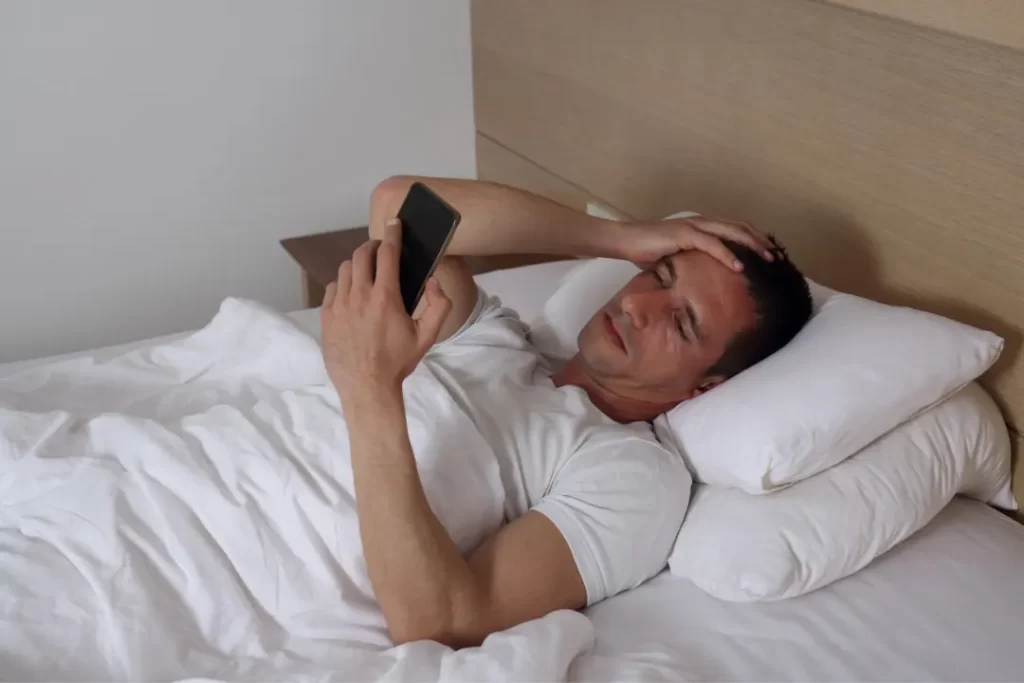
Tryptophan:
A natural sleep aid
Upwards of 70 million Americans suffer from serious sleep disorders, according to the CDC. A far greater number of people suffer from poor sleep and sleep issues. For those suffering from poor sleep, there are remedies that offer promising alternatives to Benadryl and melatonin. According to the Journal of Psychiatry and Neuroscience (JPN), a gram of tryptophan taken 45 minutes prior to sleep can shorten the wait for sleep onset (for those with mild insomnia). Tryptophan can increase the synthesis of serotonin, which plays a key role in the function of mood and sleep.
As the JPN explains, unlike Benadryl and melatonin, tryptophan is found naturally in foods such as milk. The tryptophan found in food, however, is ingested along with large amino acids that compete for space within the pathways that ferry tryptophan into the brain. This means that dietary tryptophan doesn’t actually increase the amount of tryptophan in your brain. In other words, that glass of milk before bedtime isn’t going to be much help.
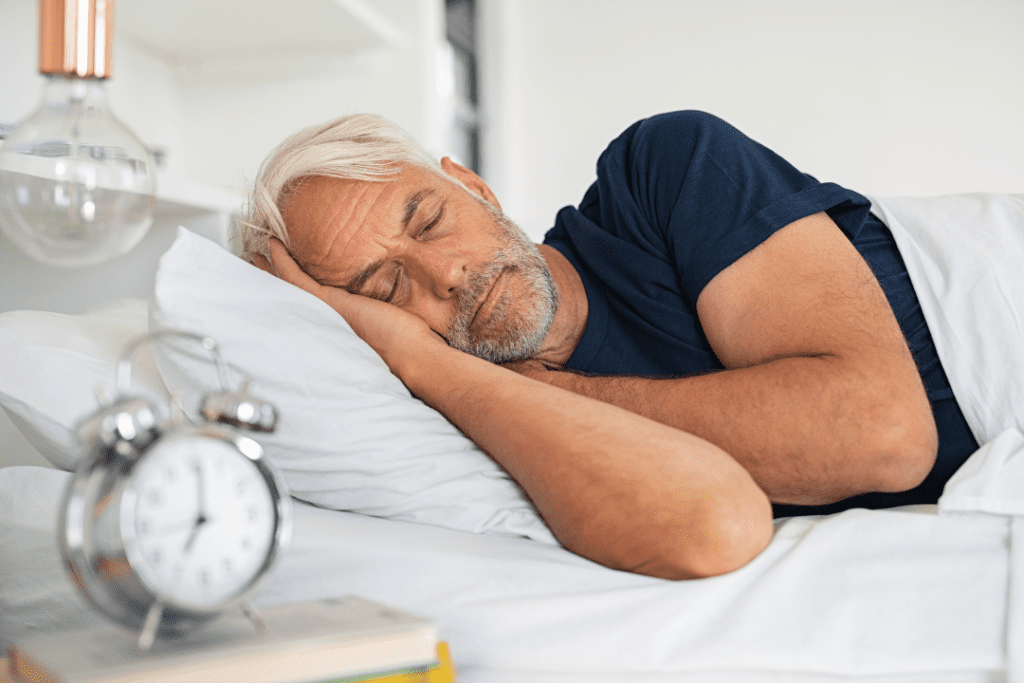
Magnesium:
The sleepytime mineral
Magnesium, an essential mineral, is another promising alternative to Benadryl and melatonin. The Journal of Research in Medical Sciences (JRMS) conducted a double-blind placebo-controlled clinical trial highlighting the efficacy of magnesium as a sleep aid. The results showed improved sleep quality, sleep time, and a decrease in sleep latency (how long it takes someone to fall asleep once the lights are out). How exactly magnesium works is not yet fully understood, says the JRMS, but the results speak for themselves.
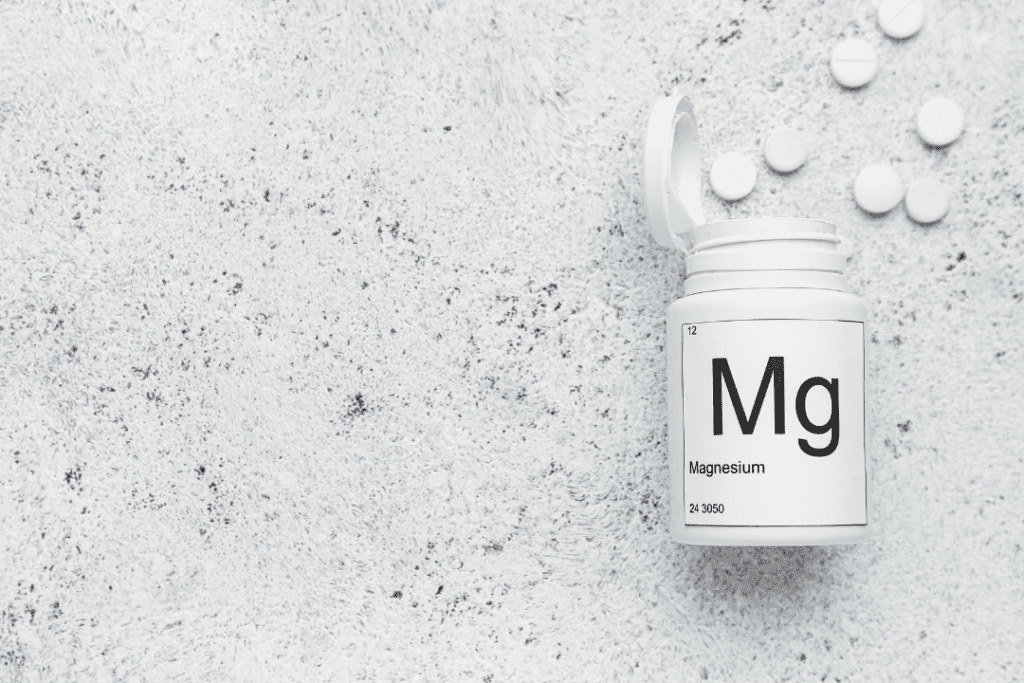
Glycine:
A Powerful Neurotransmitter
Finally, there’s glycine. As explained by Psychology Today, glycine is a neurotransmitter that both stimulates and quiets the brain and nervous system. Glycine also helps the body produce serotonin. Psychology Today notes that increased glycine levels may help people sleep more soundly, fall asleep faster, and produce deeper, more restorative sleep.
According to Psychology Today, one of the ways glycine functions is by lowering core body temperature, which is part of the body’s natural sleep journey. In fact, lowering the temperature of the bedroom is often suggested as part of good sleep hygiene. For example, the Cleveland Clinic suggests a bedroom temperature between 60 to 67° F (15 to 19° C) for ideal sleep.
Good Sleep Hygiene
For those who wish to avoid Benadryl and melatonin, the CDC also offers tips for good sleep hygiene:
- Consistency: Going to sleep and waking at the same time.
- Ambiance: Keep your bedroom dark, quiet, and at the right temperature.
- Exercise: Being physically active during the day can help improve sleep quality.
- No eating: Skip big meals, caffeine, nicotine, and alcohol before bed.
- No electronics: Avoid using technology like laptops and cell phones in bed.
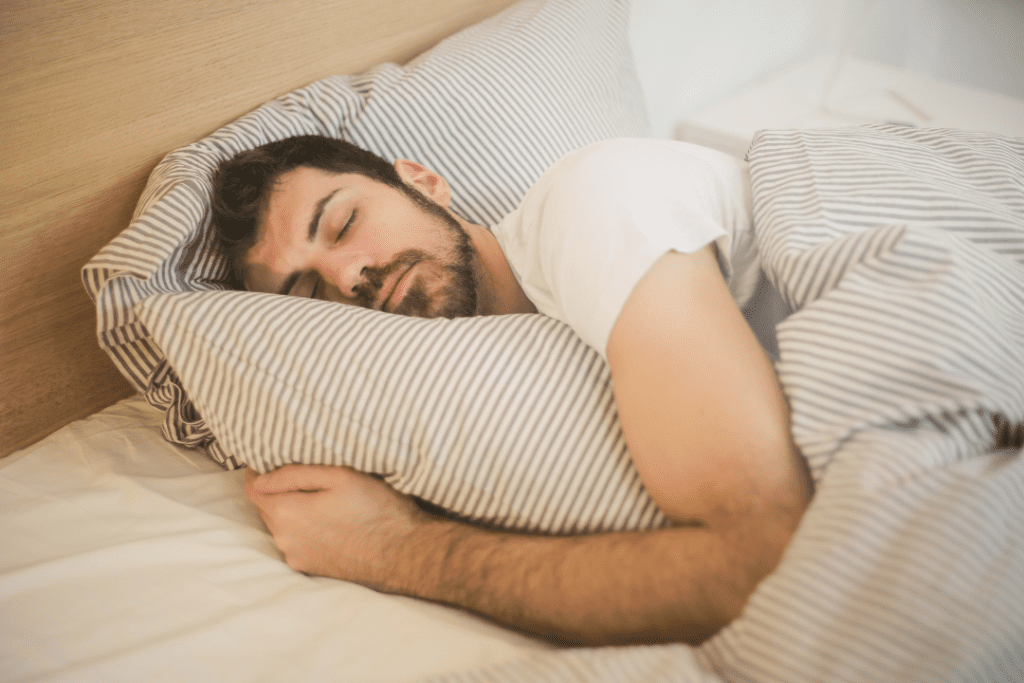
All-in-one alternatives to Benadryl and melatonin
With bedtime already a potential minefield for many, having to take several supplements while balancing good sleep hygiene may sound like just another worry to add to an already large worry pile. Luckily, all these supplements can easily be taken together. DELTA, a promising natural product created by BrainLuxury, offers a safe alternative to Benadryl and melatonin that combines tryptophan, magnesium, glycine, and more in a single, convenient package.
A product like DELTA Brainluxury™ guides the brain through a good sleep cycle by facilitating the production of the neurotransmitters necessary for a good night’s sleep. This way, instead of relying on the limited melatonin your body makes its own, and instead of risking parasomnias and drowsiness from Benadryl, you wake up refreshed.
Sleep is too important to leave to Benadryl and melatonin
According to the National Institute for Health, sleep is necessary for healthy brain function and good physical health. It even supports growth and development in teens and children. And, over time, poor sleep can contribute to long-term health issues. A restless night can adversely affect how you think, feel, behave, and take in information. Quality sleep produces a difference you can feel, and it’s too big of a deal to leave to Benadryl and melatonin. It’s best to practice good sleep hygiene and reach for more effective alternatives.
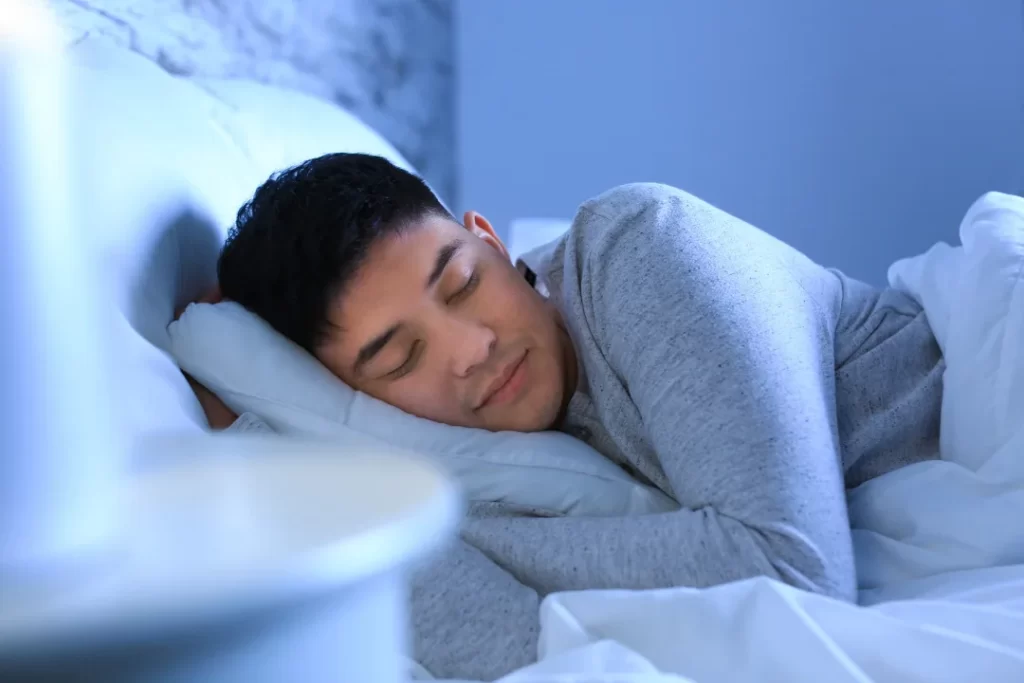
Further Reading:
Melatonin Overdose: A Melatonin Overdose Is Extremely Dangerous: Safer Supplementation For Relaxation
Medical News Today: Melatonin: Are we using too much?
Science Daily: Settling the debate on serotonin’s role in sleep
U.S. News: Melatonin’s Popularity Rises, Along With Hidden Dangers
Important Note: The information contained in this article (Dangers Of Benadryl And Melatonin As Sleep Supplements) is for general informational purposes only, and should not be construed as health or medical advice, nor is it intended to diagnose, prevent, treat, or cure any disease or health condition. Before embarking on any diet, fitness regimen, or program of nutritional supplementation, it is advisable to consult your healthcare professional in order to determine its safety and probable efficacy in terms of your individual state of health.
Regarding Nutritional Supplements Or Other Non-Prescription Health Products: If any nutritional supplements or other non-prescription health products are mentioned in the foregoing article, any claims or statements made about them have not been evaluated by the U.S. Food and Drug Administration, and such nutritional supplements or other health products are not intended to diagnose, treat, cure, or prevent any disease.


